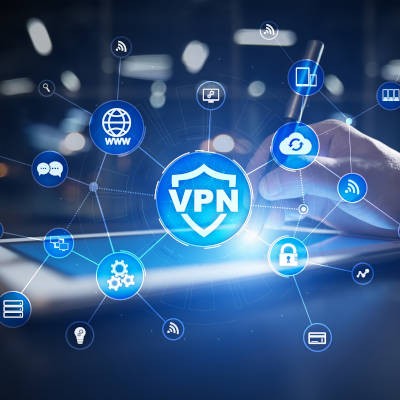Direct Technology Group Blog
Understanding VPN and How One Helps Your Business
With remote work remaining a popular option embraced by many businesses nowadays, it is more important than ever that security is prioritized amongst the employees now operating outside of the office. One facet of doing so is to implement a virtual private network, or a VPN. Let’s go over what a VPN is, and how it works to protect your business’ data.
What is a VPN?
A Virtual Private Network is a specialized tool, designed to protect your data as it is sent over the Internet. The easiest way to describe it is as a tunnel that obscures your data as it travels through it.
Let’s put you in the shoes of a remote worker, for a moment. One of the biggest obstacles to your productivity is going to be your inherent lack of access to in-house data and resources. The VPN provides a simple means of resolving that challenge, by establishing a secure connection between your remote terminal and the workplace’s network infrastructure. That way, you can access the data and other resources stored there as though you were in the office itself.
How Secure is a VPN?
A good VPN offers a very important layer of security for users outside of the office. It doesn’t give you a free pass from using other security protections, but it does secure the communication between a device and your network when the device is on a network that you don’t control (like a home network, or free Wi-Fi at a public place).
The VPN, after all, is a virtual private network. To maintain that privacy, the VPN hides the data it carries behind encryption protocols. As a result, any data that a snooping cybercriminal does catch a glimpse of is jumbled and scrambled beyond coherence.
In essence, a VPN allows your remote team members to access their in-house resources, without adding any undue risk to your business or its data.
Interested in learning more about virtual private networking, or other crucial pieces of modern business IT? Lean on Direct Technology Group for more assistance! Give us a call at (954) 739-4700 to find out what we can offer through our managed services.



Comments